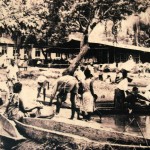Despite a long-held policy of going after regime figures and their associations — and not “Jamshid Average” — the Washington Post reports [...]]]>
Despite a long-held policy of going after regime figures and their associations — and not “Jamshid Average” — the Washington Post reports that planes operated by Iran Air are unable to refuel in most of Europe as the result of a deal struck last month between four European oil companies and the United States.
Thomas Erdbrink writes in the Post that this is part of a broader move to “discourage international businesses from dealing with Iran.” Thus, going after the refueling of Iranian jets
illustrates a shift away from an earlier U.S. policy of reaching out to the Iranian people and trying to target mostly state organizations central to Iran’s nuclear program. Officials now admit that the increased pressure is hurting ordinary Iranians but say they should blame their leaders for the Islamic republic’s increasing isolation.
[...] As a result of the canceled jet fuel contracts, all Iran Air planes departing from destinations such as Amsterdam, London and Stockholm are now forced to make lengthy fuel stops either at an airport in Germany or one in Austria, where Total of France and OMV of Austria are still providing the 66-year-old airline with jet fuel until their contracts run out, possibly as soon as next month. At that point, Iran Air could be forced to cancel or severely reduce flights.
Iran Air flies reports to fly about 500,000 passengers each year between Tehran and 11 European capitals and other destinations.
At his press conference on Friday, State Department Spokesperson P.J. Crowley told reporters (with my emphasis):
We want to see the Iranian people have the same opportunities to travel, to engage as others in the region and around the world have. And the only thing that’s impeding Iran from having that kind of relationship with the United States and the rest of the world is the government and policies of Iran. If they change their policies, if they meet their obligations then certainly, as we continue to offer the prospect of engagement and a different kind of relationship, that depends squarely on what Iran does and what policies it chooses to pursue.
Of course it is untrue that the behavior of the Iranian leadership is the only thing preventing Iranians from traveling around Europe. The U.S. sanctions program certainly bears some responsibility.
Crowley’s statement clearly conflates the Iranian leadership and the nation’s people: “Iranian people…impeding Iran…policies of Iran…they change their policies…what Iran does and what policy it chooses.”
If Secretary of State Hillary Clinton sticks by her claim earlier this year that Iranian is drifting toward a military dictatorship, and if anyone in the administration buys into the idea that the 2009 Iranian elections were fraudulent, it seems pretty tough to understand how the U.S. administration could be holding the Iranian people responsible for the actions of their leaders.
]]>I decided to visit my Nicaraguan friend who stays in a village called Fougamou, in central Gabon. So I looked up the nearest town, Lambaréné. It turned out to have a museum honouring Dr. Albert Schweitzer, who arrived there in 1913, built a hospital, and won a Nobel Peace Prize in 1952.
I [...]]]>

The Ogooué River seen from Dr. Schweitzer's home. Photo: M. Sayagues
I decided to visit my Nicaraguan friend who stays in a village called Fougamou, in central Gabon. So I looked up the nearest town, Lambaréné. It turned out to have a museum honouring Dr. Albert Schweitzer, who arrived there in 1913, built a hospital, and won a Nobel Peace Prize in 1952.
I had never been interested in him but it seemed like a truly off-the-beaten path museum, just my kind. But what sold me on Lambaréné was the name of its river: Ogooué. I HAD to see a river with such a wondrous name.
So I set off to Lambaréné on my way to Fougamou. Believe me, I was in the green heart of Africa. Green, as in rainforest.
I am glad I went. The river is awesome. The museum is charming. It preserves the old hospital and personal quarters from the 1920s as they were originally. Next is the modern hospital, which attends to 80,000 consultations and 6,000 hospitalized patients every year, and continues to practice what I believe was Schweitzer’s most creative medical idea: to welcome the African family, with place to wash, cook and sleep, in a hospital-cum-village.
True, the relatives provided – and still do – free labour. Also true, it is mostly women and girls who provide this free labour. In Gabon and elsewhere, caring for the sick and, increasingly, for the elderly, is women’s work.
In AIDS-ravaged Southern Africa, caring for the sick has put a burden on women and girls that is unthinkable to Western health consumers.
So huge, that the campaign Making Care Work Count lobbies governments for recognition and support of carers – who are subsidizing governments with their work, with little help, making up for woefully inadequate health budgets.
Notwithstanding the gender bias, to include the relatives in hospital design is much better than making them sleep on the street pavement, as I’ve seen in Luanda’s hospitals.
It also reflects a recognition that in Africa medicine must incorporate cultural and social meanings; that it can’t isolate the individual from the collective; that the meaning of disease is part of a bigger reality.

Yeyette and Joel Boko
I travelled from Libreville, 300 kms away, in a taxi-brousse. The first to get in was with Yeyette Boko. She was worried to tears about her husband, Joel Boko, who was in Lambaréné being treated for an ulcerous thigh. He needed a graft. So Yvette had wrestled a two-week leave from her employer to be with him.
She breezed into his room: “Mon chéri, I missed you so much!” They snuggled on the bed and called their four-year-old son, who was staying with an aunt in the capital.
Next day I visited again. Yeyette had cooked a hearty meal. He seemed stronger. They looked happy.

The old landing by the hospital-village.
Read about worldwide efforts to measure and pay women’s unpaid care work
]]>